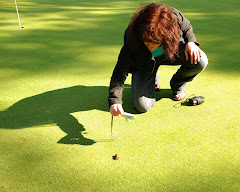So, while copyediting a book review, I wanted to verify a couple of things about a title, How to Live: A Search for Wisdom from Old People (While They Are Still on This Earth) by Henry Alford. Just to be quick about it, I Googled the title. I found it right away, of course, but also found (among the top of the total of 95 million listings) the following other guidelines for living:
How to live a life of contentment~a blog of Zen habits, chock full of advice such as: focus on what's important, do less each day, do only one thing at a time, eat slowly.
How to live Online~Not sure why, but the top post of this blog was how to stop being sad, which included advice such as accept why you are sad, talk to a trustworthy person, write/talk/paint your feelings.
How to Live on 24 Hours a Day~A Wikipedia entry for a 1910 book by Arnold Bennett who (as part of a larger philosophy) suggests setting aside 90-minutes (to start) a day to improve your life by reading and learning more about your business, history, and art. Suggested reading includes Milton's Paradise Lost.
Forbes magazine article "Ten Ways to Live Longer"~It all starts with attitude (I stopped reading after that) and references Woody Allen and Hugh Hefner. In the same paragraph.
Audioslave's video for "Show Me How to Live"~Includes the lyrics, "You gave me life/now show me how to live."
Thinking How to Live~From the Harvard University Press catalog, Allan Gibbard's book that is based on his philosophy that our thoughts, actions, beliefs all stem from the questions we ask ourselves. Or, as the university press puts it, "The result is a book that investigates the very nature of the questions we ask ourselves when we ask how we should live, and that clarifies the concept of 'ought' by understanding the patterns of normative concepts involved in beliefs and decisions." Phew! "Metaethics" indeed.
Of course, with all this advice on how to live, one wouldn't really have time to live.
Quality AND Quantity: Challenging the False Dichotomy in Modern Job
Searching
-
During a recent conversation about my AI insourcing approach, a thoughtful
colleague posed a challenge that goes to the heart of my methodology: “With
AI y...
3 months ago
